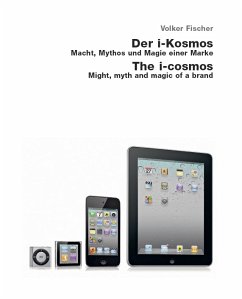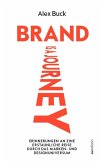Apple Inc., the Californian computer company,has been marked by unparalleled success overthe past three and a half decades. Like no othercompany, it has succeeded in shifting the focusof use from utility to coveted possessions whenit comes to computers and electronic entertainmentdevices such as the iPod, the iPhone andthe iPad.In addition, each of the products in the i-familyhave changed their product genres technologicallyand ergonomically to such an extent thatnot only have all competitors adopted these new'user guidances', but hundreds of complementaryproducts have been created around theseproducts as well, from a wide range of accessoriesto docking stations, i. e., veritable radioswith external speakers for the iPods and iPhonesthat allow users to experience the stored musicwithout headphones.The iPhone has compelled all manufacturers ofmobile phones to add smart phones with touchsensitive screens, the touch phones, to their programs.And the iPad will fundamentally transformthe handling of video and news as well. Since theintroduction of the iPhone, more than 200 000special application programs, the so-called apps,have been made available for these i-devices.In their product genres, these devices haveeach caused a paradigm shift: they are bothleading and cult products, and they represent adevelopment that has leveraged the mobile Internetand delocalized the act of surfing from thehome to almost anywhere.The book comments upon this process of 'disruptivetechnologies', which has taken place onlyvery rarely in the history of technology and design.They leaf through the preconditions and positionthese innovative devices in product-historical, social,and psychological contexts. Spiegel magazinecorrectly wrote: 'The i-cult. How Apple seducesthe world.' But beyond any seduction, the'iCosmos' represents a changed handling of information,media, and entertainment.The internationally known architecture and designhistorian Volker Fischer was deputy directorof theDeutsches Architekturmuseum in Frankfurtam Main for over ten years. Since 1995 he hasbuilt up a new design department in the Museumfor Applied Arts in Frankfurt; in addition to his museumwork he teaches history of architecture anddesign at the Hochschule für Gestaltung in Offenbach.Volker Fischer is already represented in EditionAxel Menges by books on Stefan Wewerka,Richard Meier, the Commerzbank in Frankfurt byNorman Foster and Hall 3 of Messe Frankfurt amMain by Nicholas Grimshaw.
Hinweis: Dieser Artikel kann nur an eine deutsche Lieferadresse ausgeliefert werden.
Hinweis: Dieser Artikel kann nur an eine deutsche Lieferadresse ausgeliefert werden.








